Poster of the Paniers Marseillais
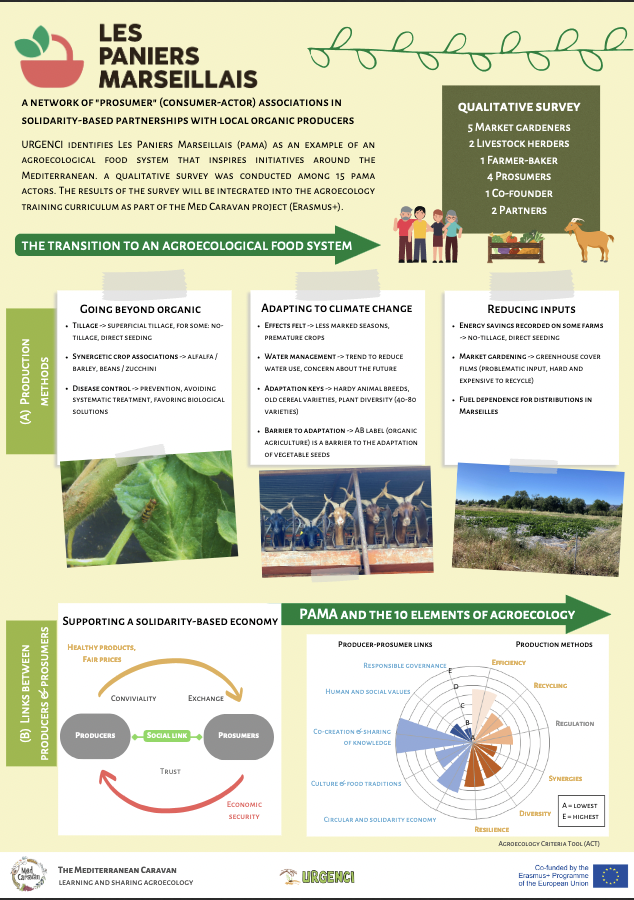
Poster les Paniers Marseillais
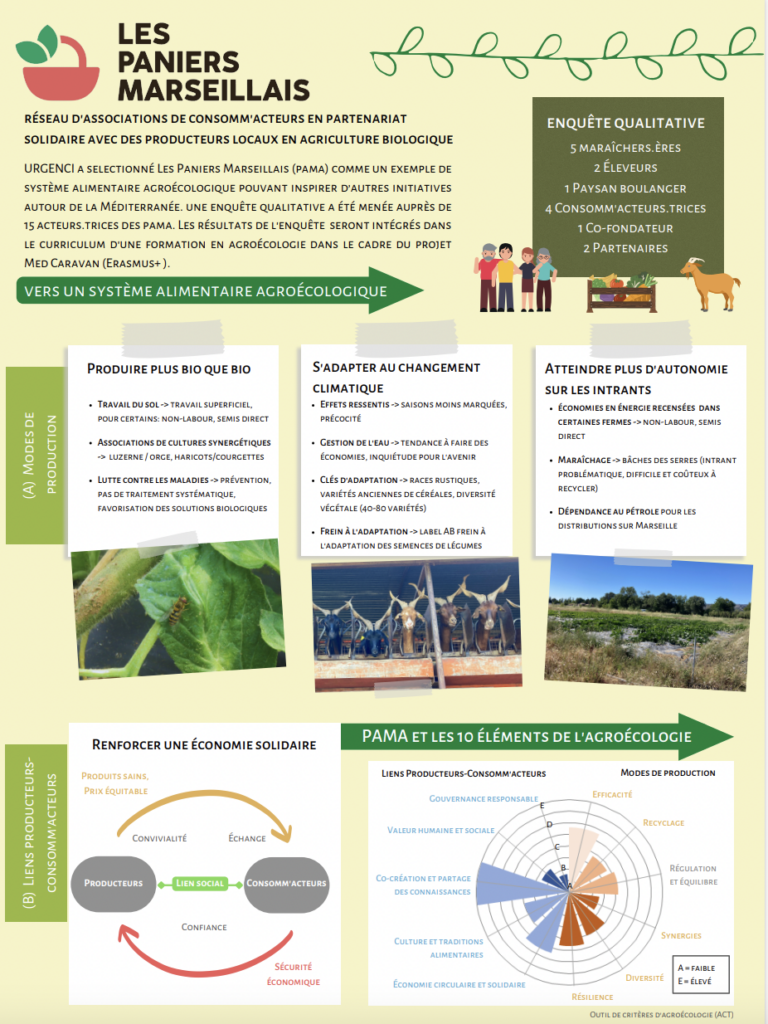
Poster MedCaravan – Apprendre et partager l’Agroécologie
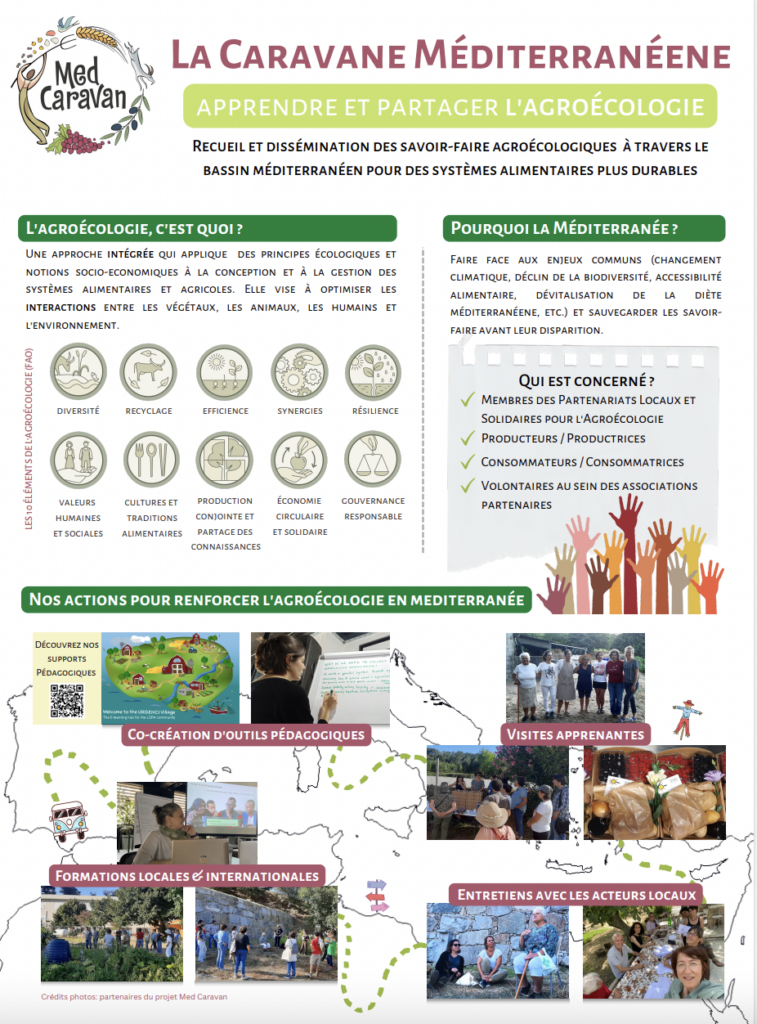
MedCaravan Poster – Learning and Sharing Agroecology
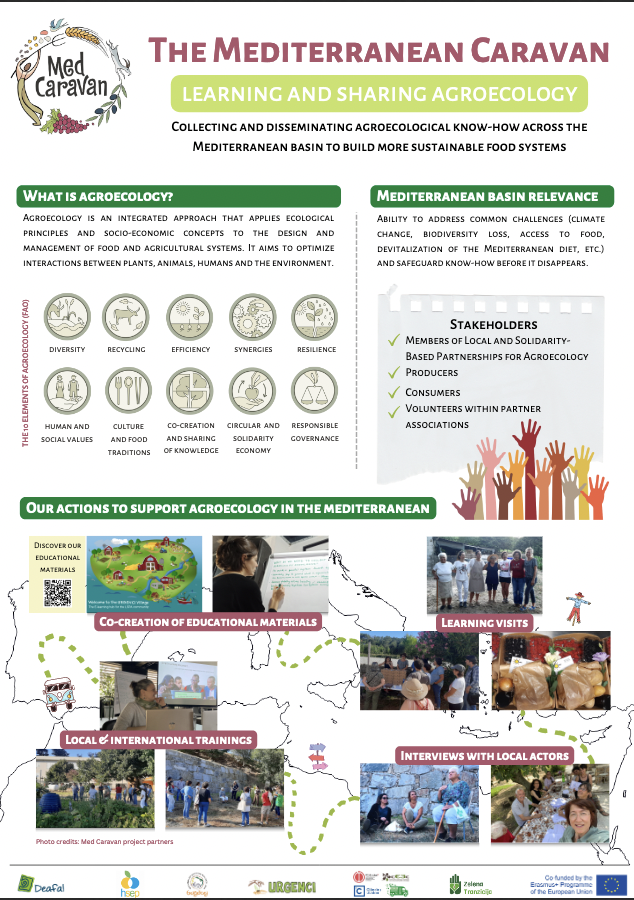
Planet A – EN_Game Pack

Planet A is a card game for Agroecology education Age: 12+ 3-4 people 30-45 min The game pack consists of the rule book, problem and solution cards, board cards and tokens
Planet A – IT_Pacchetto gioco

Planet A è un gioco di carte per l’educazione all’agroecologia Età: 12+ 3-4 persone 30-45 minuti La confezione del gioco comprende il regolamento, le carte problema e soluzione, le carte tabellone e le pedine.
Planet A – FR_pack de jeu

Âge : 12 ans et plus 3-4 personnes 30-45 minutes Le jeu se compose d’un livret de règles, de cartes de problèmes et de solutions, de cartes de jeu et de jetons.
SALSIFI Module presentations
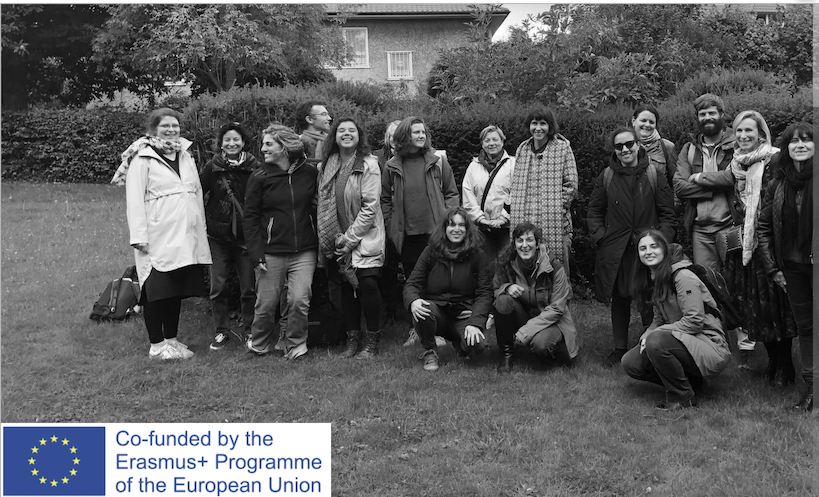
Pedagogy teaching approaches for Agroecology
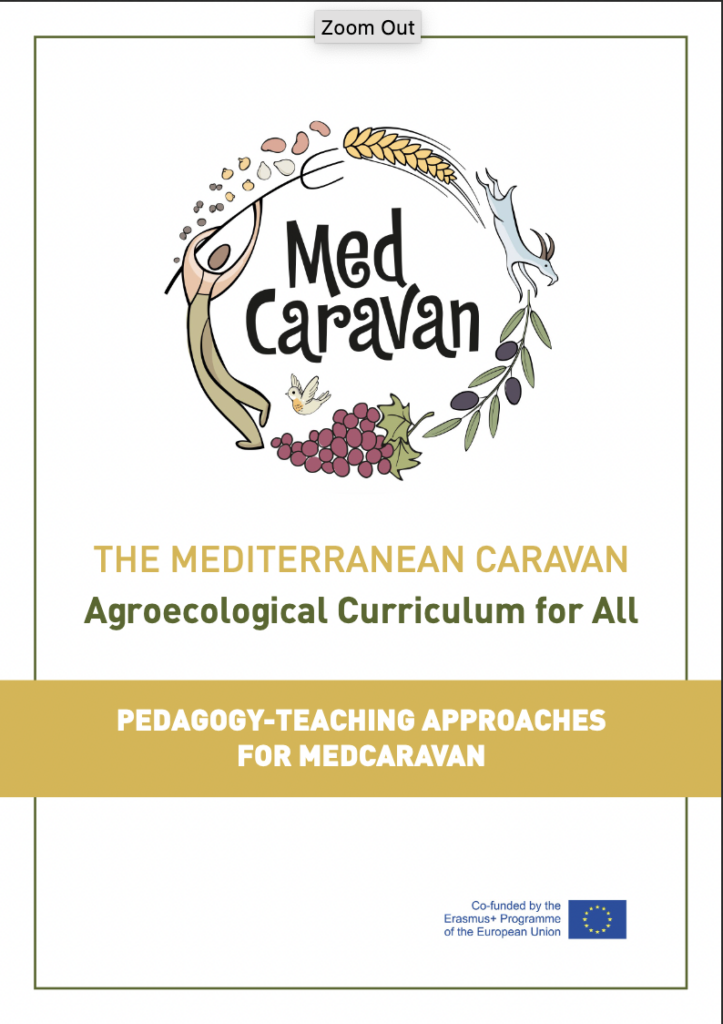
An important part of the MedCaravan project mission is that of extending agroecological knowledge beyond University scholars and the academic world, to cater for the needs of various types of actors within the agroecological systems. Quoting from the definition of UNESCO in 1997 Non-Formal Education can be defined as any organised and sustained educational activities that do not exactly correspond to the definition of formal education. Non-formal education may therefore take place both within and outside educational institutions, and cater to persons of all ages. Depending on country contexts, it may cover educational programmes to impart adult literacy, basic education for out-of-school children, life-skills, work-skills, and general culture. Non-formal education programmes do not necessarily follow the “ladder” system and may have differing durations, and may or may not confer certifica-tion of the learning achievement.
Organising a training session

The principles of teaching that we promote in this curriculum are based on the facilitation process rather than sharing readymade recipes. For many trainers that are new to this process, it can be quite challenging, because every training session will be unique, depending on the participants and the interaction between them as well as the interaction with the trainer. It requires not only to have knowledge about the topic but also to have facilitation skills and the ability to adapt to the situation. To get a good result and build confidence, the process needs to be well-planned and organised. In the end, the learning outcome will be something that the learners will not only hear about but something they will remember and feel confident to implement in their everyday lives. Here are some practical tips on how to organise agroecology training.